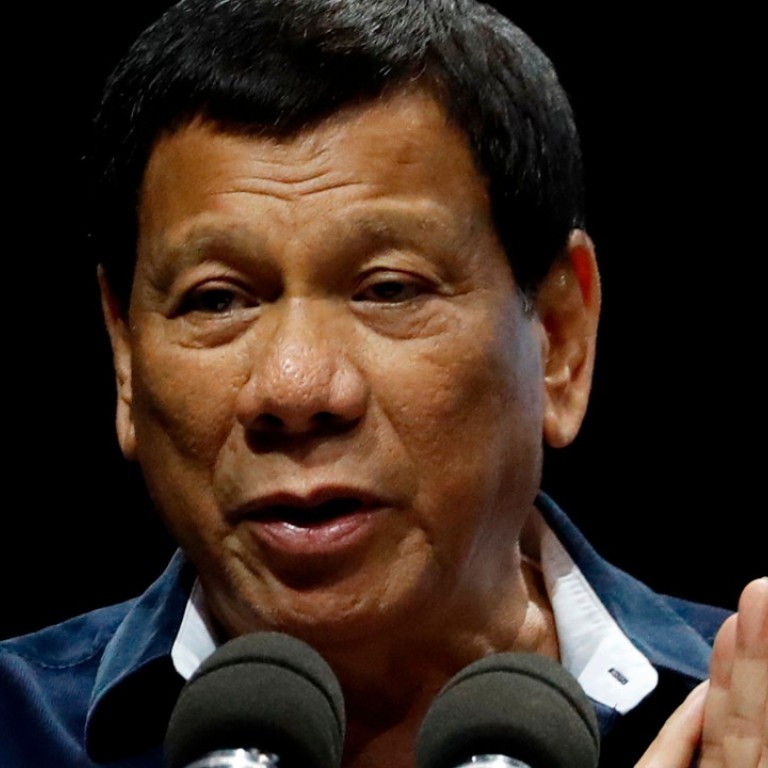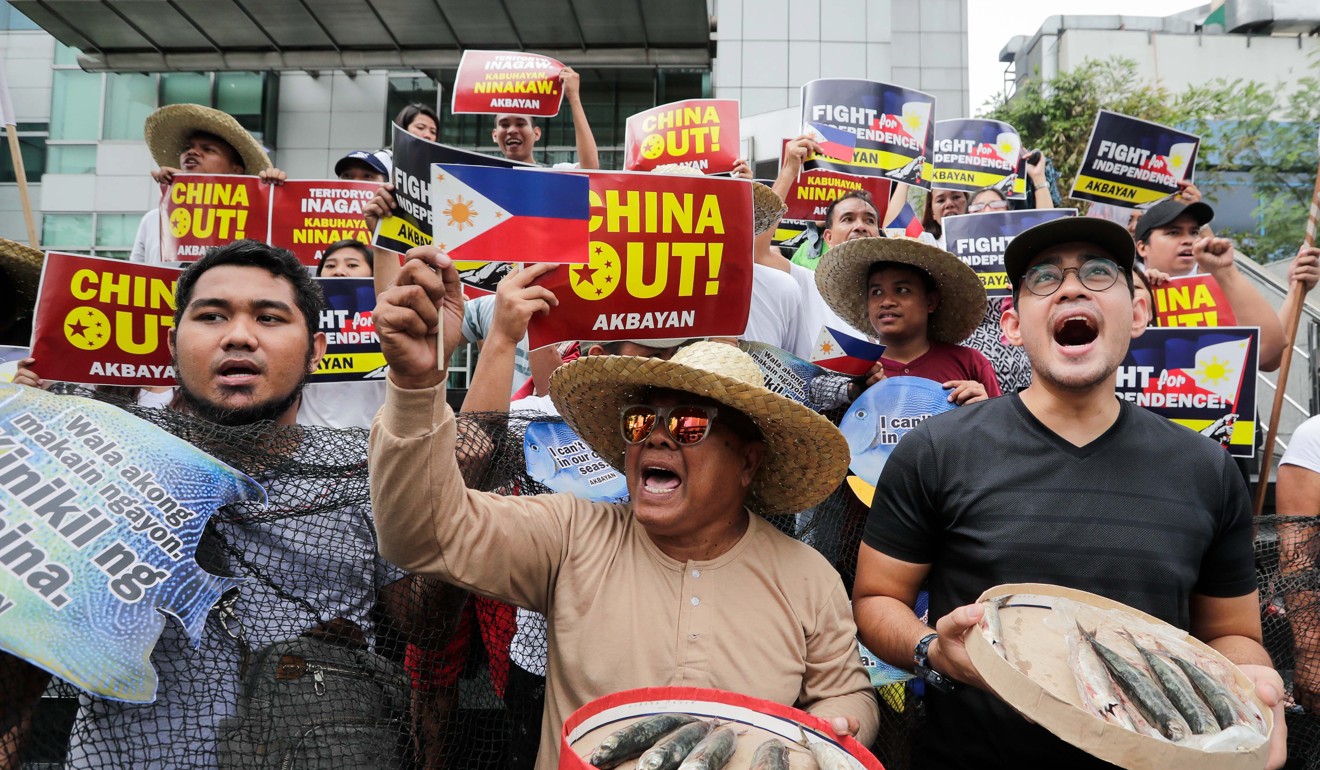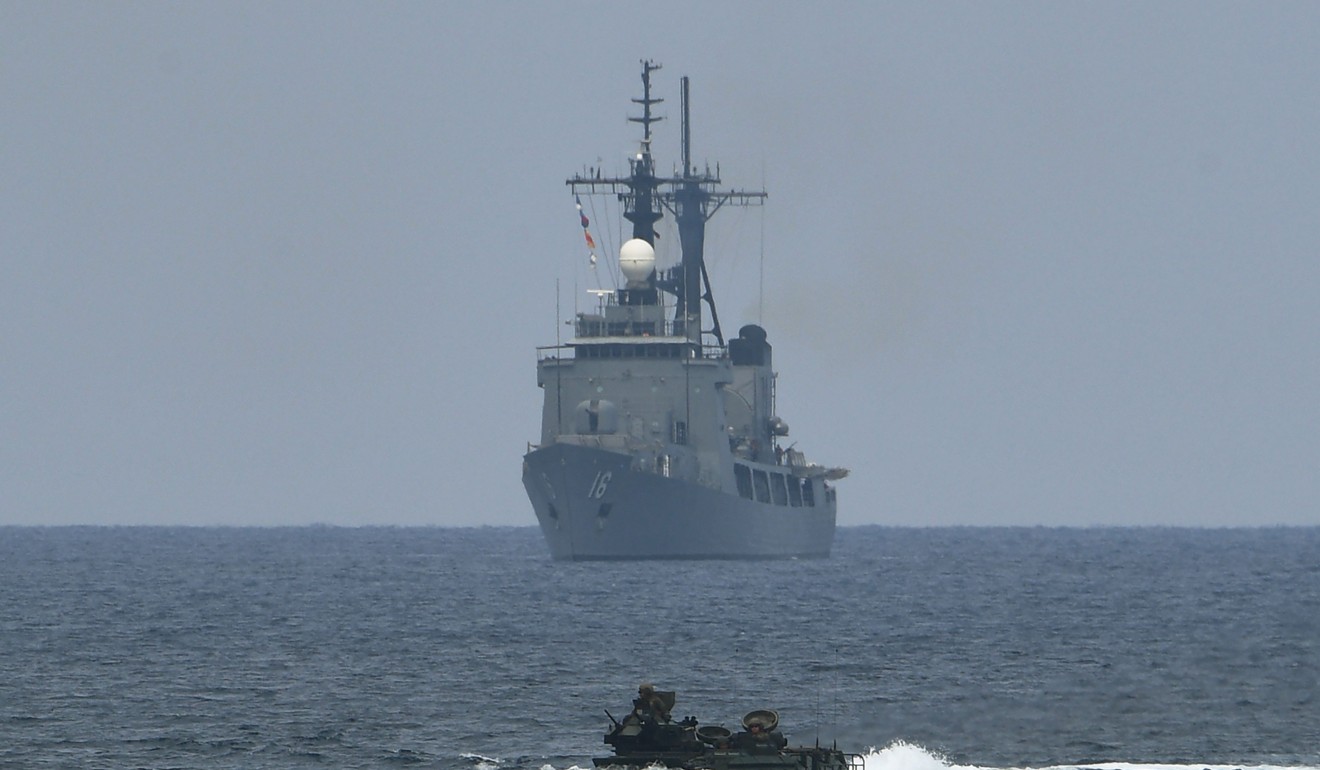
Why it’s best for Philippine leader Rodrigo Duterte to avoid aligning either with China or the US
The Philippine president can most advantageously advance his country’s national interest by adopting an ‘equilateral balancing strategy’, Richard Heydarian writes
Philippine President Rodrigo Duterte often fancies himself as the reincarnation of mid-20th century titans of the so-called Non-Aligned Movement. In this sense, Duterte is out of touch with his times, yet also unique and captivating in the context of a country which has been in the shadow of America for the past century.
In reorienting his country’s strategic orientation, however, Duterte risks provoking a backlash at home, where most people still prefer the comfort of old alliances over an untested dalliance with China.
As Duterte enters his third year in office, the Philippine defence and foreign policy is still torn between competing narratives of national dignity and interest.
In a Nehruvian fashion, Duterte dedicated a significant portion of his second State of the Nation Address to extolling the virtues of an “independent” foreign policy.
As the harbinger of a new era in Philippine foreign policy, Duterte argued, he will “pursue good relations with all nations anchored on an independent foreign policy”, following “basic tenets of sovereign equality, mutual respect and non-interference”.
He reassured the Filipino people that he “will uphold and promote our national interests in the international community” through strengthening and seeking partnerships with “those who share our values”.
The Philippine president never clarified what, exactly, he meant by “our values”; yet the common thread in his pronouncements was the principle of “non-interference”.
Bishops call for 3-day fast after Duterte called God stupid
To Duterte, what counts above all in matters of external relations is unreserved recognition of his mandate to govern his nation as he pleases. In short, he wants to engage the world, but on his own terms, including vis-à-vis the superpowers of the East and West.
And it was precisely within this context that he has recalibrated the Philippines’ relations with America and China. Of all the nations in the world, he has singled out China in the most flattering way possible, while reserving cuss-laden sentences for traditional allies in the West.

In his speech, Duterte celebrated the cultivation of “warmer relations with China through bilateral dialogues”, which have, according to him, led to an “easing of tensions between the two countries and [an] improved negotiating environment” in the disputed waters of the South China Sea.
Soon afterward, however, he unleashed a flurry of abusive language and criticism against both the US and the European Union, accusing them of interfering in the Philippines’ domestic affairs. In particular, he has been incensed by their criticism of his scorched-earth drug war, which has reportedly led to the death of thousands of suspected drug dealers.
President Duterte could rule indefinitely under new constitution
To him, the West has committed the unforgivable sin of disrespecting his democratic mandate to govern the Philippines according to his law and order agenda, which remains popular among large sections of the society.
In a major break with practically all of his predecessors, who largely treated America with deference and respect, Duterte reached far into the past to paint the country’s sole treaty ally as a historical aggressor and brutal occupier.
Duterte, who remains a highly popular leader, can’t ignore the sentiments of his people and defence establishment, which remain wary of Chinese intentions.
Duterte reminded the Filipino people about their forgotten early-20th century revolution against America, which often resorted to brutally massacring indigenous resistance movements.
The speech was poignantly instructive, precisely because it provided the best insight into Duterte’s strategic mindset. Above all principles, “non-interference” is his most sacred priority.
And it’s precisely within this context that one should understand Duterte’s professed “love” for Chinese leaders, his portrayal of Beijing as his personal “protector”, and his controversial quip about the Philippines becoming a Chinese “province”.
Unlike the West, which has repeatedly criticised Duterte’s foreign policy, China has offered full diplomatic and logistical support to Duterte’s drug war.
In multilateral forums, China has repeatedly called on the international community not to interfere in the Philippines’ domestic affairs, while building drug rehabilitation centres in the country.
In exchange, a grateful Duterte has refused to raise the Philippines’ arbitration award against China in international gatherings, enjoining smaller nations to be “meek” and “humble” in exchange for Beijing’s “mercy”.

He has also dismissed domestic criticism of China’s rapid reclamation of and militarisation in Philippine-claimed land features in the South China Sea. Yet, Duterte’s dalliance with China is a risky affair, which may undercut his domestic base down the road.
Perhaps the experience of Indonesia’s Sukarno, the founding father of the Non-Aligned Movement, is instructive. As the Indonesian strongman stepped up his strategic flirtation with China at the height of the cold war, his armed forces gravitated towards the US. The upshot was his removal from office amid intensified domestic political tensions and ideological battles.
How the Scarborough Shoal came back to haunt China-Philippines relations
Duterte remains a highly popular leader who still enjoys the support of most Filipinos. Yet he can’t ignore the sentiments of his people and defence establishment, which remain wary of Chinese intentions.
Thus, it’s best if he instead adopts an equilateral balancing strategy, aligning with neither China nor America, while advancing his country’s national interest.
Richard Heydarian is a Manila-based academic and author

